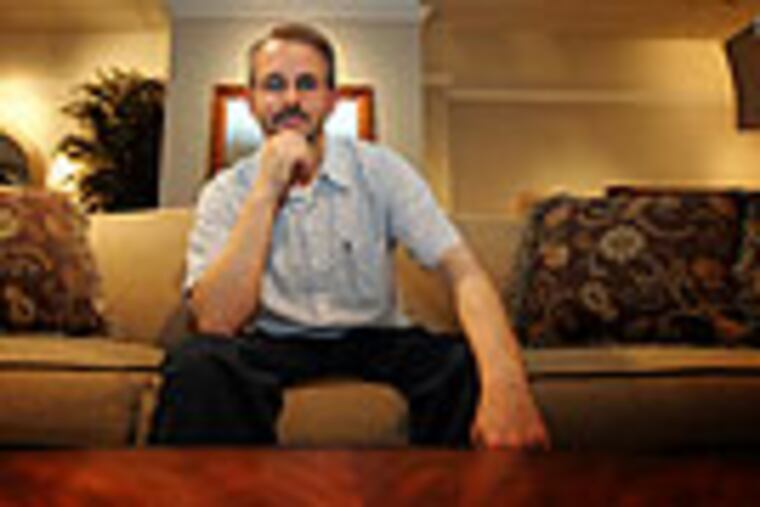A leaner Oskar Huber reopens
Ron Huber seems strangely dispirited for a man whose business has gotten a second lease on life.

Ron Huber seems strangely dispirited for a man whose business has gotten a second lease on life.
Until you realize how he got that opportunity.
It meant filing for Chapter 11 bankruptcy protection in September 2008 - something Huber contends he and brothers Bob, Don, and Glenn desperately tried to avoid.
They are fiercely proud of the Huber family reputation as reliable purveyors of high-quality furniture in the Philadelphia region - a reputation forged by their grandfather in 1927 and obsessively protected by subsequent generations.
They were uncomfortably aware of the hit that reputation probably would take - from vendors as well as customers - once they initiated a court action that would help them walk away from more than $14 million in debt.
Time will soon reveal how much damage has been done to the Huber reputation the last 21 months.
Aided by the very bankruptcy they said they reluctantly pursued, the Huber brothers have reorganized as a company of just two recently opened stores - in Southampton, Bucks County, and Ship Bottom, N.J.
"It certainly is a concern . . . how much the reputation was affected," a subdued Ron Huber said Monday in the Southampton store, which served for years as headquarters for the Oskar Huber Fine Furniture chain. "It was a very tough economy. We needed to do this to survive."
Under a settlement approved in February in U.S. Bankruptcy Court in New Jersey, the Hubers are no longer responsible for more than $14 million owed to a variety of unsecured creditors. The agreement – reached after a long and, participants say, adversarial negotiations process – called for payment of $1.25 million to be shared by certain of those creditors. An additional $1.2 million in unpaid sales taxes will be paid in full over time.
The deal also provided for the restructuring of $3.2 million in real estate loans to be paid off in two years to First Niagara, which acquired Harleysville National Bank, Oskar Huber's secured lender. The bank was also paid $2.5 million in cash at settlement of the bankruptcy action.
Before bankruptcy, the furniture chain had consisted of nine stores, including three D&D Home Furnishings Inc. outlets added through a merger in 2008. It was a futile attempt to, as Ron Huber put it, "weather the storm" - the housing and credit crisis collectively known as the Great Recession that punished so many businesses, including furniture retailers.
As part of the Chapter 11 process, Oskar Huber and D&D parted ways and conducted going-out-of-business sales that appalled longtime Oskar Huber customers because the liquidation company mixed in lower-end product. But it did raise $3.5 million needed to pay some bills, said Hal L. Baume, a bankruptcy lawyer at Fox Rothschild L.L.P., of Lawrenceville, N.J., who represented the Hubers.
To finance the reopening of two stores that were high performers for Oskar Huber - Ship Bottom opened about six weeks ago; Southampton about a week ago - the Huber family has, among other things, remortgaged homes. The corporation has also secured $900,000 in two-year loans from First Niagara.
"An extraordinary undertaking" is how the bank's attorney, Jon Petrakis, president of Deeb, Petrakis, Blum & Murphy P.C., described Harleysville's willingness to extend new financing to Oskar Huber, and First Niagara's approval of that arrangement as part of its purchase of Harleysville.
Besides wanting "to ensure its loans got repaid," the bank also was interested in enabling "this local business to continue to operate, to come out of bankruptcy and renew operations," Petrakis said.
"Very few" Chapter 11 filings result in what the Oskar Huber experience has produced - essentially the same company run by the same pre-bankruptcy management with the debt restructured, Baume said.
"This is the kind of case Chapter 11 was really designed for - to give an honest debtor an opportunity to save their business . . . as opposed to just going out of business," Baume said.
Saved to a point. Gone are most of the Oskar Huber employees. At its peak, the company employed 220. Its current workforce can fit around a conference table: 15 people.
That is partly because the Huber brothers and their children and other family are and will be playing a bigger role in both stores.
"We're starting very lean and mean to keep our costs down," Ron Huber said, adding with a chuckle: "Family is the least expensive labor you can get."
It is also, he said, a way to maintain a firsthand relationship with customers.
"That's something I didn't have enough of when we were larger," Huber said.
These days, as he is out trying to sow new relationships with vendors and restore old ones, Huber tries to avoid spending a lot of time thinking about the could-haves and should-haves of the last couple of years.
He also does not like to dwell too much on what his grandfather, the company's namesake, would have thought about the company's route to bankruptcy protection, leaving bills unpaid to all sorts of businesses.
"It certainly did hurt our pride, especially when you consider the legacy issue of a company that was started by our grandfather 81 years before" the bankruptcy, Huber said.
While some people have suggested "we would be better off doing something else," he said, "we felt we hadn't damaged the reputation too much to make this reorganization unsuccessful."